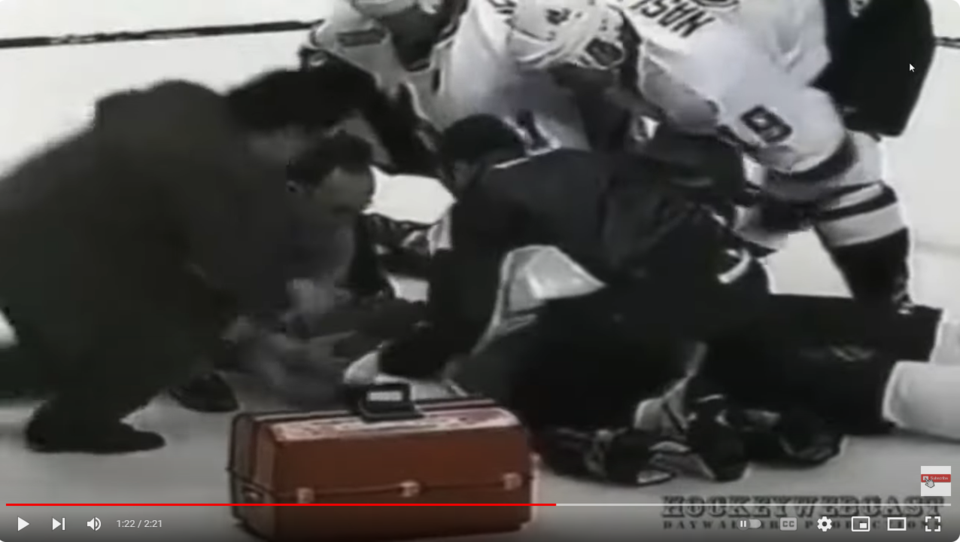Hockey, or at least the North American men's version of it, can be something of a blood sport; how you feel about that depends on your perspective.
When does on-ice violence become something that should be responded to with criminal charges?
In practice, the answer from police and Crowns seems to be 'seldom': in the two cases this century, the Bruins' Marty McSorley was convicted in 2000 of assault with a weapon after cudgelling the Canucks' Donald Brashear with his stick, and four years later the Canucks' Todd Bertuzzi pled guilty to assault causing bodily harm after punching the Avalanches' Steve Moore in the back of the head; seven years later, Moore's lawyer said that " ... we have reached the point where we can say Steve's brain injury is permanent." Neither McSorley or Bertuzzi spent a day in jail; Bertuzzi was playing in the NHL again by 2005.
Hockey, however, is having something of a accountability moment in relation to the broader culture: less tolerance for the game's dark side, less deference from federal MPs, less of a boys-will-be-boys attitude from police, and from B.C. cabinet minister Adrian Dix at the end of January, a reminder that the ice is not in fact a Criminal Code-free zone, after a Junior A player there appeared to use a chokehold on the other side's goalie.
What does the law say?
To start with, people who choose to play a contact sport consent to the level of force its rules formally allow. As well, the courts have recognized that in a fast, rough sport, accidents are foreseeable.
That seems clear enough.
But the courts have also opened the door to a far murkier third category: force which, though it falls outside the written rules of the game, is customary enough that the victim can — arguably — be said to have consented to it.
A good example of this (leaving the consent question aside) happened last weekend when the Leafs' Morgan Rielly punished the Senators' Ridly Greig with a punch to the back of the head for scoring on an empty net.
“I thought it was appropriate,” Leafs coach Sheldon Keefe said, which to this non-sports person seemed like an awkward admission that the national sport, at least at its higher levels, is run according to a code that wouldn't be out of place in a prison cellblock or Russian barracks.
Large parts of hockey fan culture seem perfectly fine with that, but is the broader public?
In an online poll this week, readers had a roughly equal split on whether hockey violence should meet with criminal charges more often. Some 912 of you voted.
There was a sharp, clear gender divide:
And interestingly a very clear split by age. To be quite honest, I expected the opposite relationship:
Views on this question have a close connection to political affiliations:
And also to memories of physical education class, and levels of interest in the NHL now, questions that touch on people's relationship to organized sports:
Views about hockey violence also correlate with views on several other political questions:
They also correlate with libertarian views, or personal openness, on two other questions: tattoos and cannabis:
